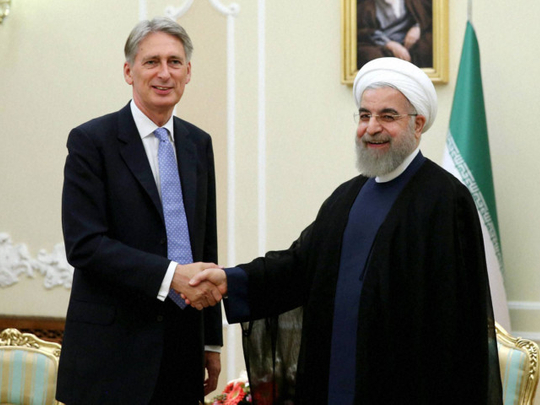
Of all the findings in behavioural science, the most significant may be “loss aversion,” the idea that people dislike losses a lot more than they like equivalent gains. Loss aversion can create big trouble for businesses and investors. And it can badly confuse political debate — as it seems to be doing in the current discussions of the nuclear deal with Iran. (Disclosure: My wife, Samantha Power, is the US ambassador to the United Nations.)
Here is a simple demonstration of the power of loss aversion: When a convenience store offers shoppers a five-cent bonus for bringing their own bags, they still don’t bother. But when the store charges five cents for each plastic bag it distributes, shoppers use a lot fewer of them. The prospect of loss concentrates the mind.
Loss aversion makes many people reluctant to invest in equities, because they don’t want to risk losing some of their principal — even if “buy and hold” is the winning strategy over the long term. And when investors assess their portfolios, loss aversion often causes them to stick, unwisely, with stocks that have lost value — while selling those that have gained. (Even professional money managers demonstrate this kind of loss aversion.)
Similarly, when electricity customers are told that they can save $100 (Dh367.30) a year if they conserve, they’re less likely to cut back on energy use than if they’re told they’ll have to pay an extra $100 if they don’t.
Whenever a new public policy threatens to impose a loss, citizens tend to become alarmed and possibly even frightened or outraged — which is why politicians often enlist loss aversion as a rhetorical strategy. For decades, for example, Democratic candidates have frequently warned voters that if they elect Republicans, they might lose their Social Security benefits.
In the case of the Iran agreement, both supporters and critics are appealing to people’s loss aversion. But they use radically different reference points to warn about radically different losses.
For supporters, the reference point is what the world would look like without the deal. If Congress rejects it, they say, multinational sanctions against Iran will unravel, allowing the country to advance its nuclear capabilities.
More concretely, President Barack Obama argues that “our closest allies in Europe, or in Asia — much less China or Russia — certainly are not going to agree to enforce existing sanctions for another five, 10, 15 years according to the dictates of the US Congress.”
If it forbids the deal, he says, “Congress would not merely pave Iran’s pathway to a bomb, it would accelerate it.”
For the deal’s critics, on the other hand, the reference point is the status quo — a world in which Iran lives under crippling sanctions and has no nuclear weapon. The deal, then, by offering sanctions relief, would eventually make Iran “stronger financially and better able to advance a robust nuclear programme,” according to Senator Charles Schumer, an opponent of the agreement.
It is true that if the existing sanctions were lifted, Iran would bring in more than $50 billion and could put that money to military use. It’s also true that many of the deal’s key restrictions would expire in 15 years, apparently leaving Iran free to do as it sees fit.
Those are legitimate concerns. But by using the status quo as his reference point, Schumer answers an irrelevant question: Would the deal put Iran in a better position to develop nuclear weapons in 2030 than it is in today, under existing sanctions? The relevant question is: Will the world be safer in the future with or without the deal?
Given that, without the deal, the current sanctions regime might well fall apart, Iran would soon be in a far better position to achieve nuclear capabilities than it is now.
To answer the relevant question, Congress will have to look closely at the details of the agreement. But the deal’s critics should also focus on that question — and not be distracted by vain hopes that the status quo can last.
— Washington Post











